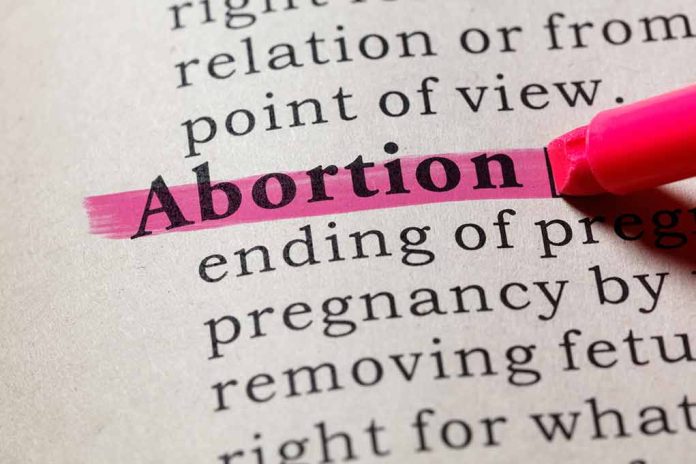
A Trump-appointed federal judge has struck down a controversial Biden-era rule that would have forced employers to provide time off for workers seeking abortions, dealing a significant victory to pro-life advocates nationwide.
Key Takeaways
- U.S. District Judge David Joseph ruled that the Pregnant Workers Fairness Act (PWFA) does not require employers to accommodate abortion-related requests, overturning EEOC guidance.
- The judge determined the EEOC “exceeded its statutory authority” by including abortion accommodations without explicit Congressional approval.
- The lawsuit was brought by Louisiana and Mississippi attorneys general, along with religious organizations seeking to protect employers from being forced to facilitate abortions.
- The ruling specifically invalidates only the abortion-related provisions while maintaining other pregnancy-related protections under the PWFA.
- This decision follows a similar ruling against EEOC overreach regarding transgender workplace regulations, establishing a pattern of judicial checks on federal agency interpretations.
Federal Judge Restricts EEOC’s Authority on Abortion Accommodations
U.S. District Judge David Joseph of Louisiana delivered a definitive blow to the Equal Employment Opportunity Commission’s attempt to mandate workplace accommodations for abortions under the Pregnant Workers Fairness Act. The ruling, issued from the Western District of Louisiana, explicitly states that Congress never intended for the 2022 law to include abortion as a protected condition. Judge Joseph’s decision effectively prevents the federal government from requiring employers to provide time off or other accommodations specifically for employees seeking abortion procedures.
“The EEOC has exceeded its statutory authority to implement the PWFA and, in doing so, both unlawfully expropriated the authority of Congress and encroached upon the sovereignty of the Plaintiff States under basic principles of federalism,” Judge David Joseph wrote in his opinion.
The case originated from a legal challenge filed jointly by the attorneys general of Louisiana and Mississippi, supported by several religious organizations concerned about being forced to accommodate practices that violate their moral and religious beliefs. The ruling specifically targets the EEOC’s interpretation that extended the PWFA’s protections to include abortion, which Judge Joseph determined represented regulatory overreach that Congress never authorized or intended.
Congressional Intent and Agency Overreach
At the heart of Judge Joseph’s ruling is the determination that if Congress had intended to include the politically and religiously contentious issue of abortion within the PWFA’s protections, it would have explicitly stated so in the legislation. The PWFA was passed in December 2022 with bipartisan support to strengthen workplace protections for pregnant employees by requiring reasonable accommodations for pregnancy-related conditions. However, the law did not specifically enumerate abortion as a covered condition.
“If Congress had intended to provide accommodations for abortion, particularly given the sharp public and political divide on the issue of abortion following Dobbs, it would have spoken clearly,” Judge Joseph stated in his ruling.
The EEOC’s final rules implementing the PWFA took effect in June 2024 and explicitly included “termination of pregnancy” among conditions eligible for accommodation. This interpretation immediately sparked backlash from Republican lawmakers and religious organizations who viewed it as federal overreach and an attempt to bypass the legislative process on a highly contentious issue. Notably, even the current acting EEOC Chair Andrea Lucas had previously expressed opposition to including abortion in the regulations.
Victory for States’ Rights and Religious Liberty
Louisiana Attorney General Liz Murrill celebrated the ruling as a win for Louisiana and for life, highlighting the significance of the decision for states seeking to maintain their policy autonomy on abortion-related matters. The decision represents a significant victory for religious employers who opposed being compelled to provide accommodations that would facilitate abortion procedures contrary to their moral and religious convictions. Judge Joseph’s ruling preserves the broader protections for pregnant workers while specifically excluding abortion from mandatory accommodation requirements.
Judge David Joseph of the Western District of Louisiana found that the EEOC overstepped its authority under the statute and ordered the Commission to remove the abortion provision from the rules.
The ruling aligns with President Trump’s consistent position on abortion policy and federal overreach. Throughout his administration, Trump has maintained support for restricting federal involvement in abortion, including reinstating and strengthening the Mexico City Policy and enforcing the Hyde Amendment to prevent taxpayer funding of abortion. This judicial decision represents a continuation of efforts to roll back regulatory interpretations that expanded abortion access without explicit Congressional authorization.
Pattern of Judicial Restraint on Agency Interpretations
Judge Joseph’s ruling follows a similar decision by another Trump-appointed judge, U.S. District Judge Matthew Kacsmaryk, who recently struck down an EEOC regulation concerning transgender employees. In that case, Judge Kacsmaryk determined the EEOC had similarly exceeded its authority by creating mandatory standards regarding pronoun usage and bathroom access. Both rulings represent significant judicial checks on federal agencies’ attempts to implement social policies through regulatory interpretation rather than through the legislative process.
“Title VII does not require employers or courts to blind themselves to the biological differences between men and women,” Judge Matthew Kacsmaryk wrote in his opinion on the transgender regulations case.
The Heritage Foundation, which supported legal challenges against both EEOC interpretations, praised the rulings as necessary checks on administrative overreach. Kevin Roberts of the Heritage Foundation noted that “the Biden EEOC tried to compel businesses — and the American people — to deny basic biological truth,” highlighting conservative concerns about federal agencies attempting to implement controversial social policies through regulation rather than legislation. These parallel rulings establish an important precedent limiting federal agencies’ ability to broadly interpret existing laws to cover highly contested social issues.







